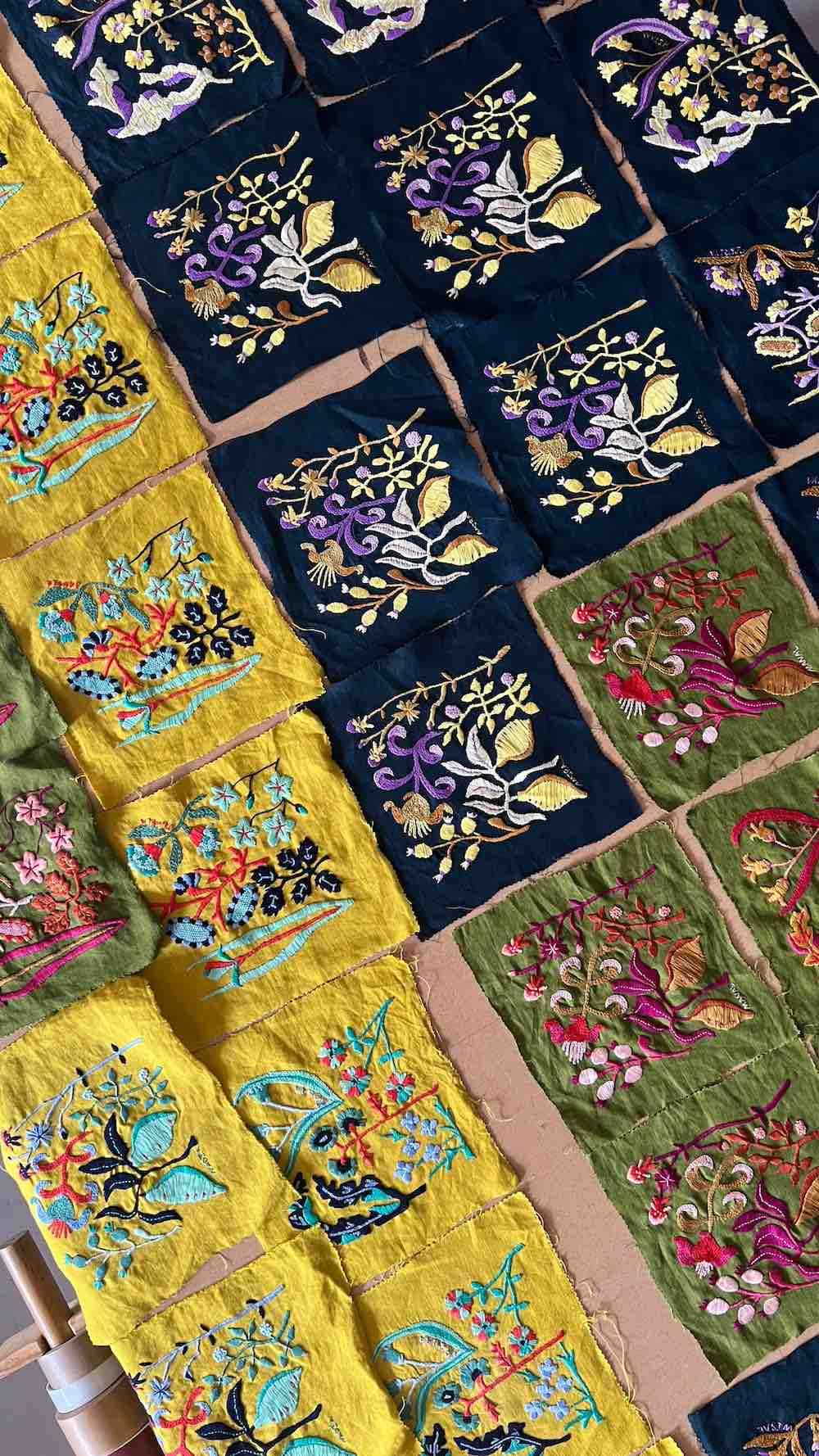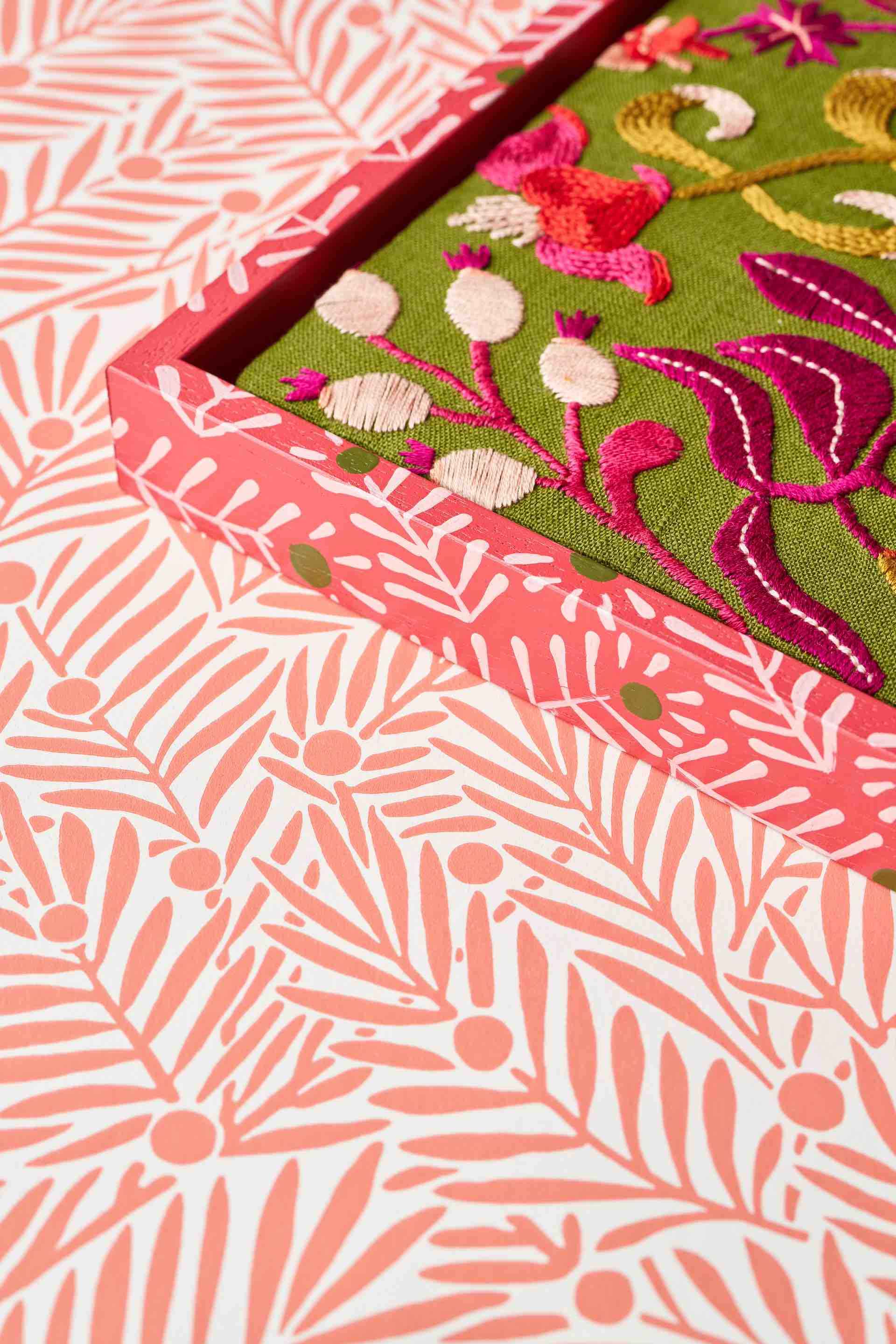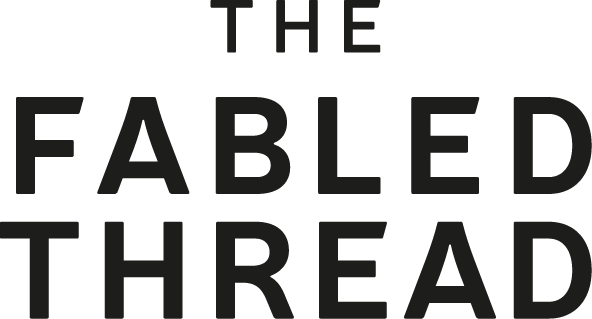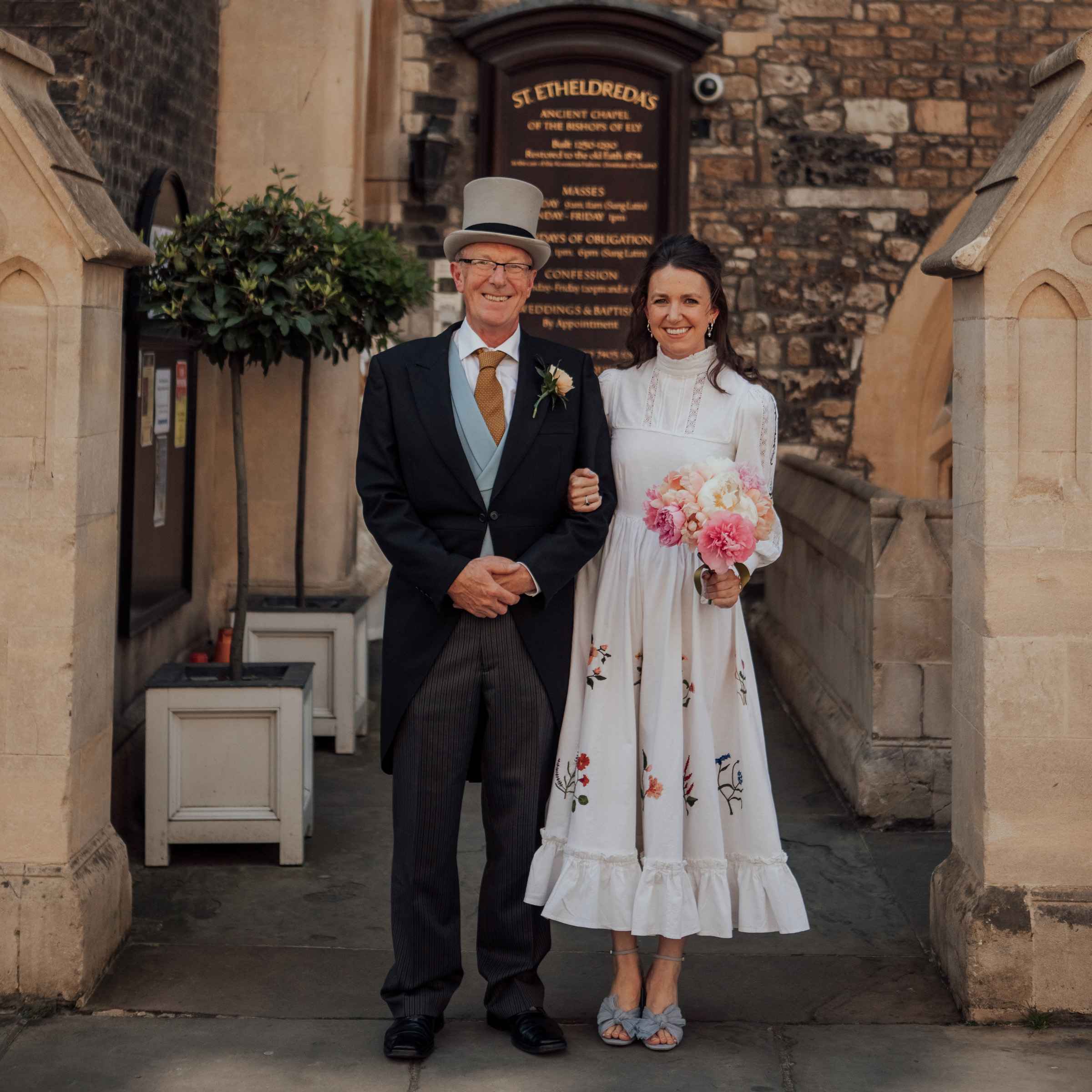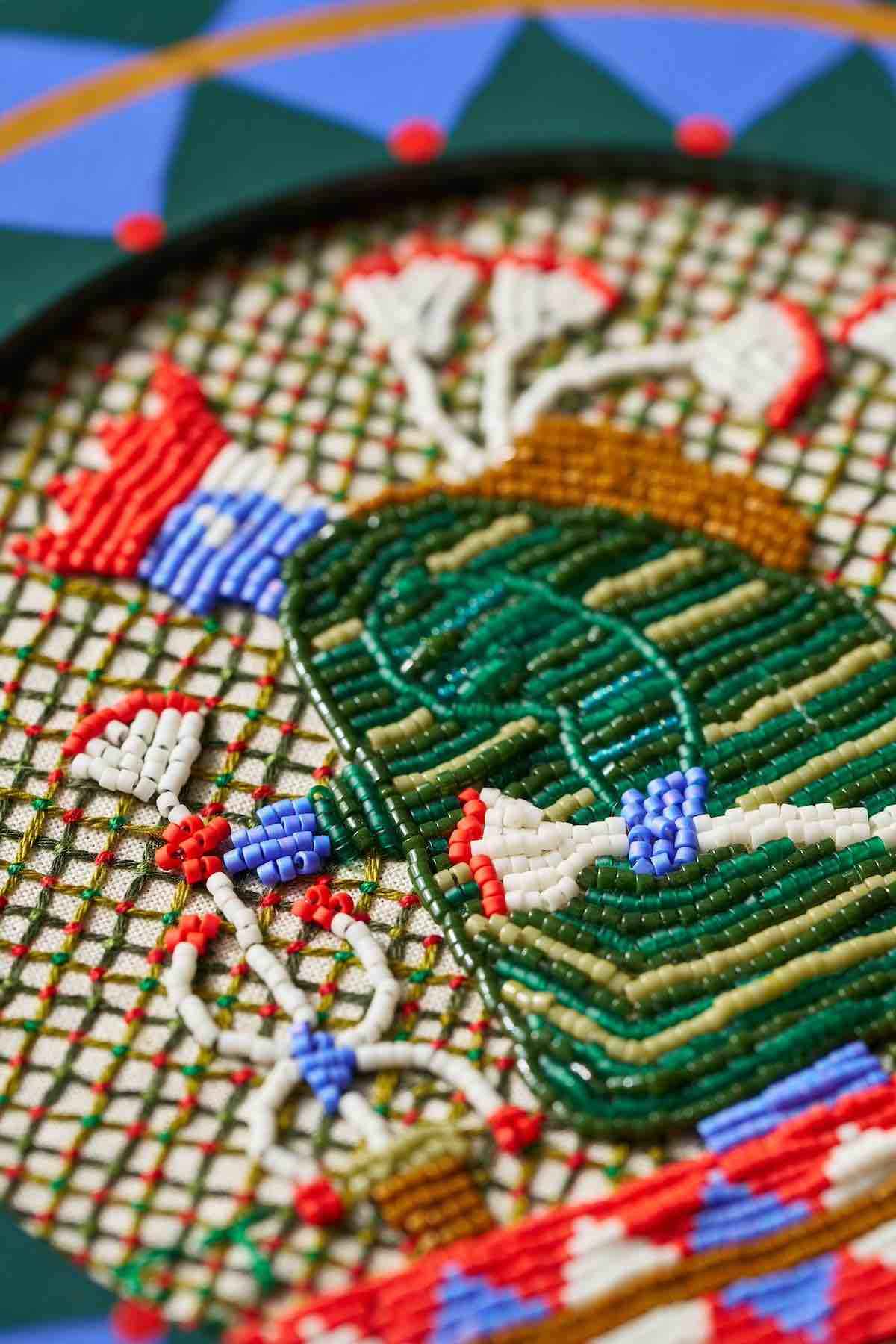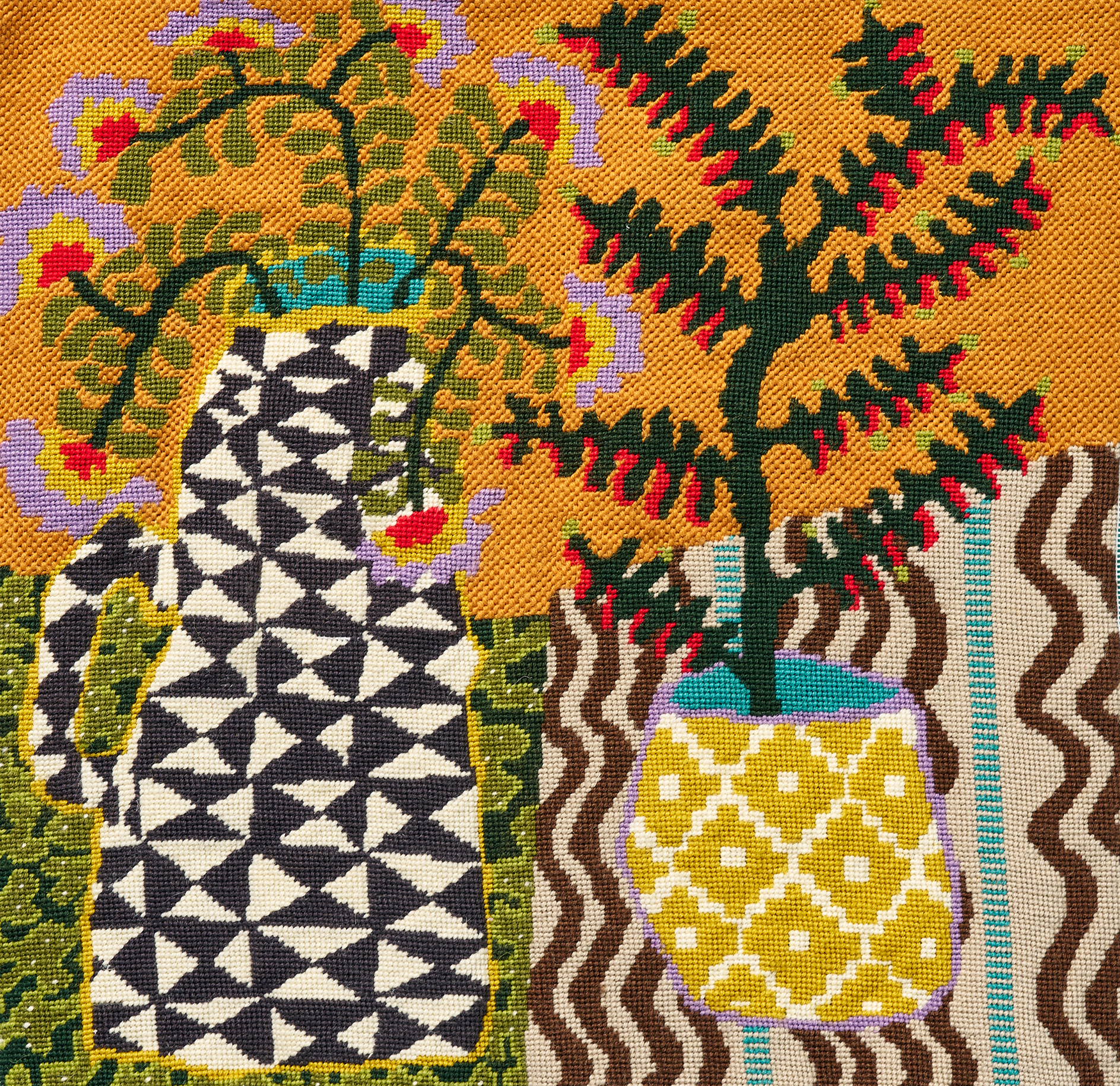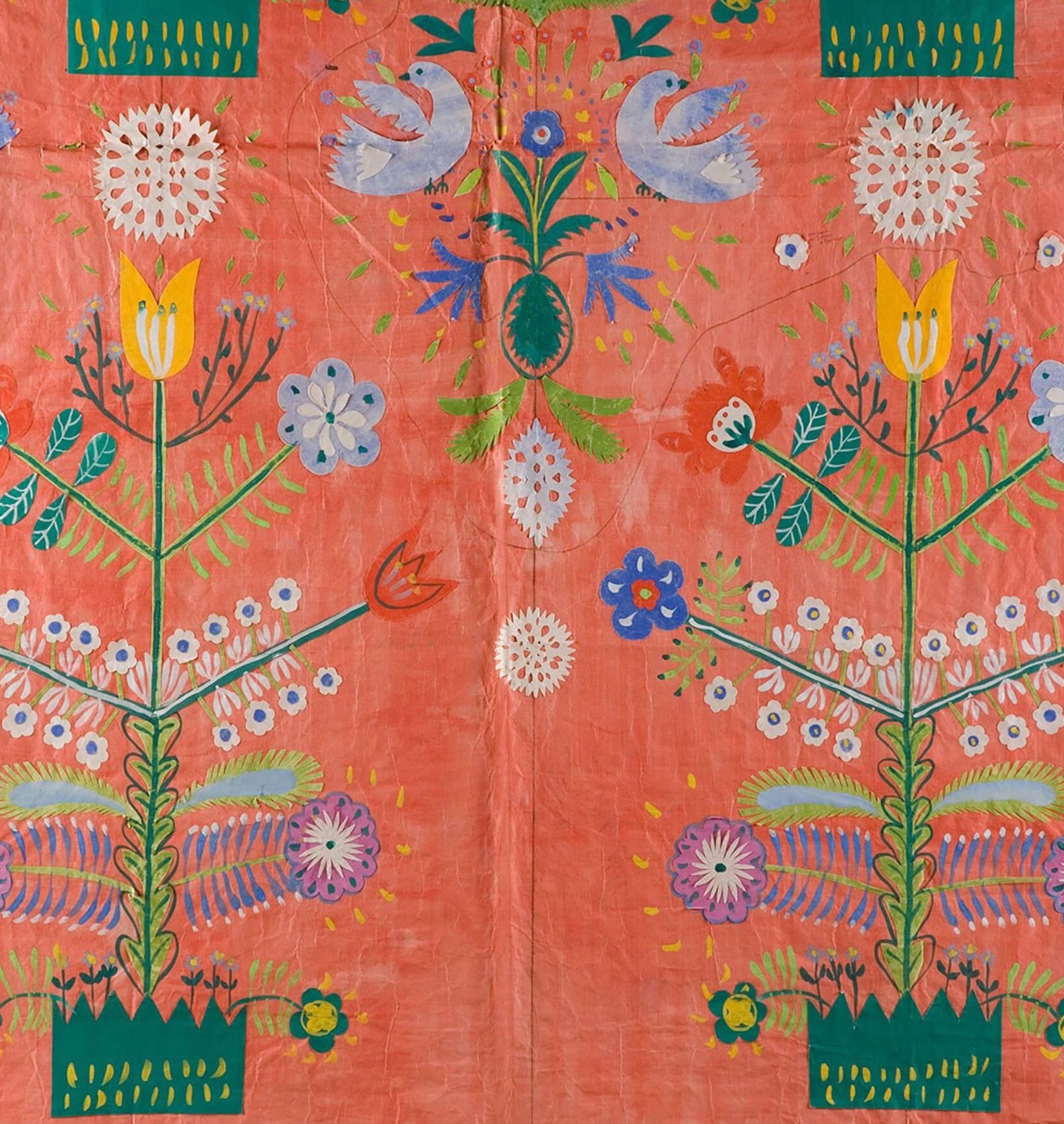Designed with Purpose: Our Morris and Co and Oshana Collaboration
Around this time last year, I received a rather exciting proposal from the iconic Morris & Co. They invited me to collaborate on creating 30 one-of-a-kind pieces to celebrate the launch of their Bedford Park collection. As a long-time devotee of decorative arts and crafts—and someone who once went so far as to paper my first home’s hallway in Morris's Willow Boughs—this was a dream come true.
Bedford Park in Chiswick, once the heart of the Garden Suburb Movement, became a revolutionary center for design through design visionaries like William Morris, C.F.A. Voysey, Allan Francis Vigers, and J.H. Dearle. Together, they shaped Arts & Crafts design, blending nature’s influence with craftsmanship. Morris & Co.'s Bedford Park collection honours this legacy, reviving iconic patterns with a bold, disruptive palette of rich, gem-like colours. So, as you can imagine, the collaboration was right up my street—colour, craftsmanship, and Morris all rolled into one. Count me in, I thought!
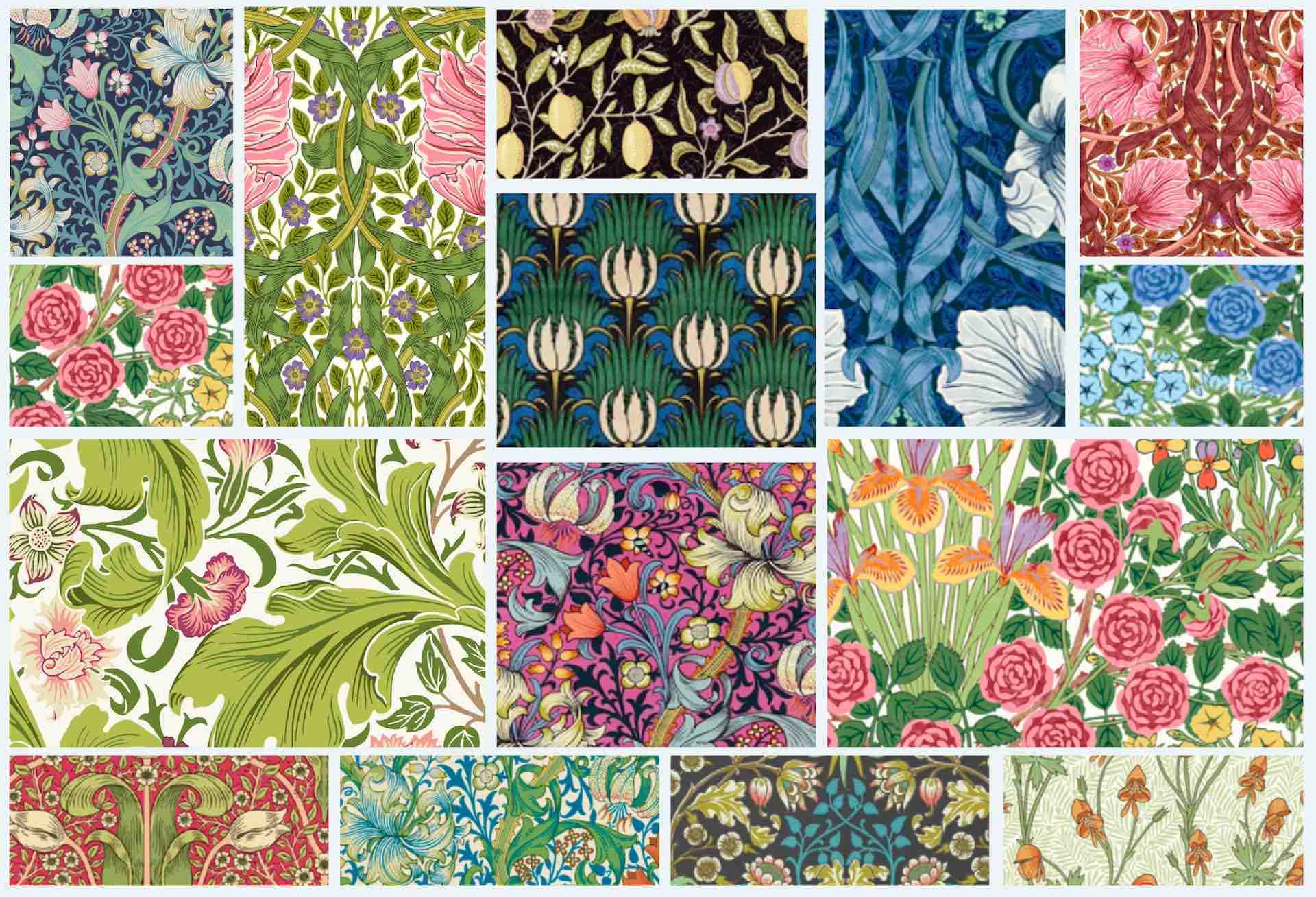
However, it didn’t take me long to realise that stitching 30 intricate designs myself wasn’t exactly feasible (unless I had a spare year or two lying around). Embroidery, after all, is a true labour of love, and I wanted each piece to be crafted with care and a meaningful touch. That’s when I thought of Oshana, a small social enterprise that’s very close to my heart.
Oshana works with Syrian refugee women in Lebanon, offering them not only an income but also a sense of community and a therapeutic outlet through embroidery. For these women, stitching isn’t just a craft—it’s an ancient tradition, passed down from mother to daughter, that connects them to their heritage and gives them self-respect in the face of unimaginable hardship. It’s humbling to see how something as simple as a needle and thread can carry so much history and healing.
So, I asked Oshana if their artisans would be able to work with us on this project. They embraced it wholeheartedly, and every stitch in these 30 pieces was lovingly sewn by one of these remarkable women. All my profits from the project went directly to Oshana and their work supporting these talented artisans.
I’m immensely proud of this collaboration—not only for the privilege of working with Morris & Co. but also because it’s helped shine a light on Oshana and the inspiring women behind each piece. When these designs grace someone’s wall, they can say, “Fatima stitched this,” or “Bushra created this,” knowing there’s a story woven into every thread.

While these pieces were a one-off for Morris & Co. to celebrate the launch of their Bedford Park collection, and therefore aren’t available for sale, there are other ways you can support Oshana. Whether it’s as simple as following their journey, cheering them on, or purchasing one of their creations inspired by their heritage, every bit helps to sustain this incredible work and support women who have been through unimaginable trauma.
I’d love to share more with you about the background of these designs and the remarkable women who brought them to life.
At the very start, we settled on the size and framing style for each piece. We opted for box frames—perfect, really, as they can be hung on the wall or set up to stand proudly on a shelf or mantle. This way, they feel more like treasured objects than mere pictures.
I wanted the designs to be bold and brimming with colour—not necessarily true-to-life hues but vivid, expressive shades that match the playful spirit of the Bedford Park collection. While the colours are adventurous, the pieces still echo the heart of the Arts and Crafts movement, capturing William Morris’s iconic motifs in a new embroidered form. It’s much like how I teach in ourFreestyle Embroidery course—setting a clear vision at the start allows the design process to unfold naturally.
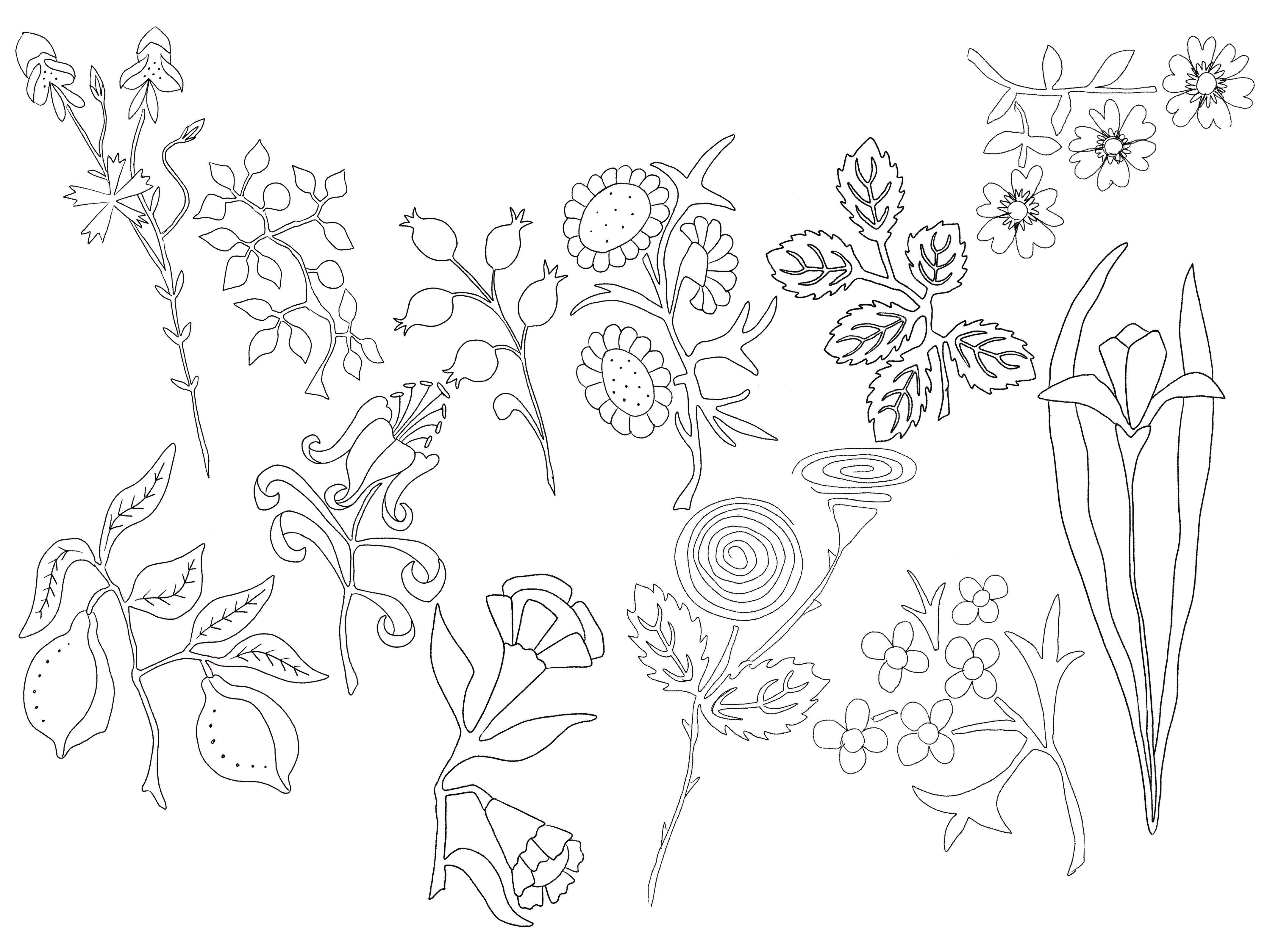


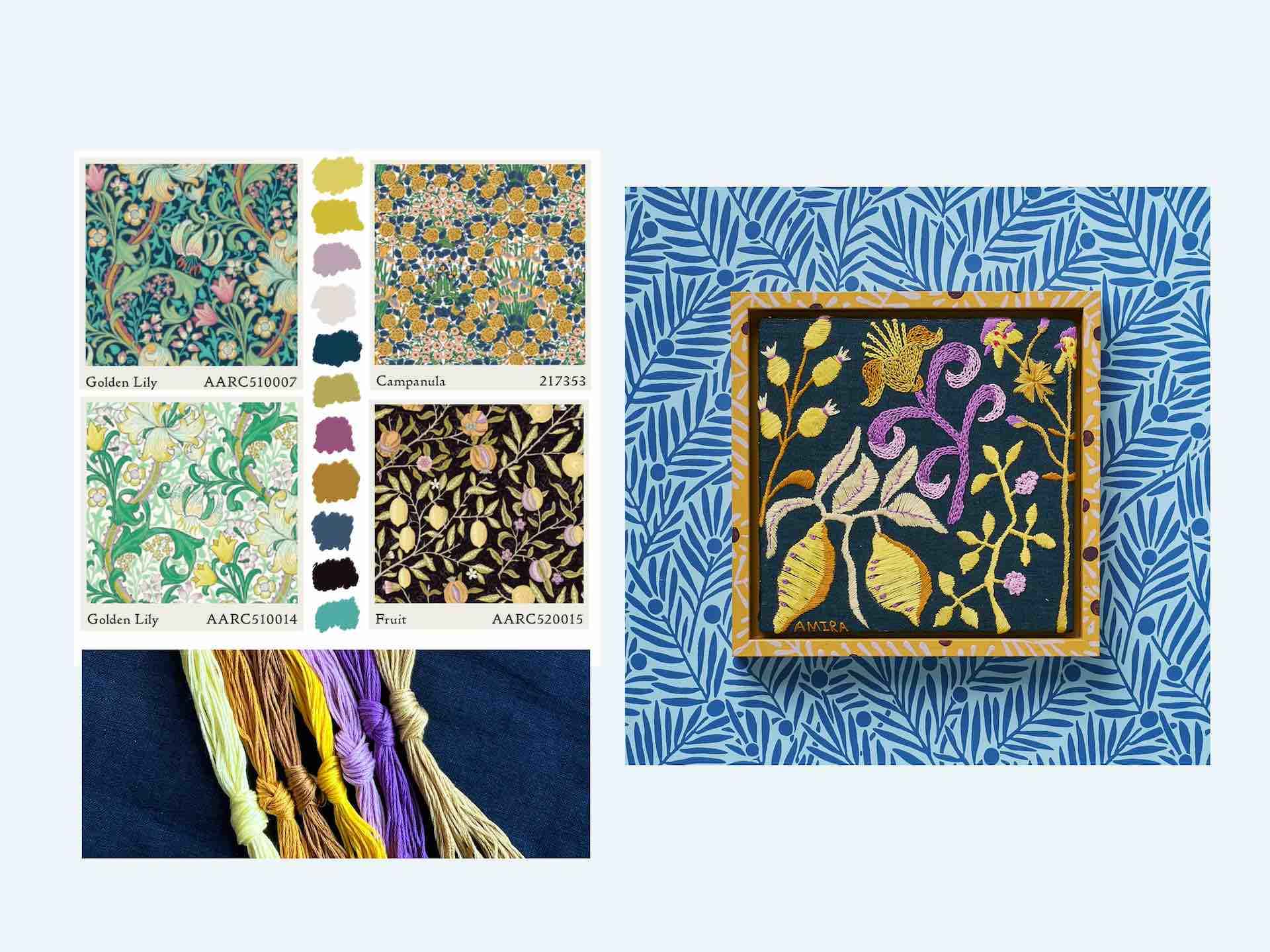
The origins of these three color palettes were important to me: they needed to represent the designs but also reflect my own aesthetic, and embody The Fabled Thread—I didn't want them to be a pastiche. So each one is faithful in the colourations, with one curveball colour thrown into the mix.


Whilst these pieces aren't available as embroidery kits, we do have bundles of the same fabric and threads in our Sewing Supplies Shop, so you can create your own designs using these colour palettes.
Just as embroidery is a slow, thoughtful process, so too are collaborations. I actually began stitching up the initial samples for these designs last December. Once we had the final designs approved by Morris & Co., the real work began: each design had to be drawn up, meticulously planned, packed, and then shipped to Lebanon, ready for the skilled hands of the women at Oshana.
Since I wouldn’t be there to guide them through each detail in person, I sent a fully stitched sample of each design, along with mini-kits to demonstrate every color choice and stitch style. The facilitators at Oshana then worked closely with each artisan to ensure they felt confident with the designs and were equipped to recreate every stitch. This hands-on guidance not only ensured that the pieces were beautifully crafted but also gave each stitcher a true understanding of the design’s character, tying our collaborative process into a single, cohesive vision.

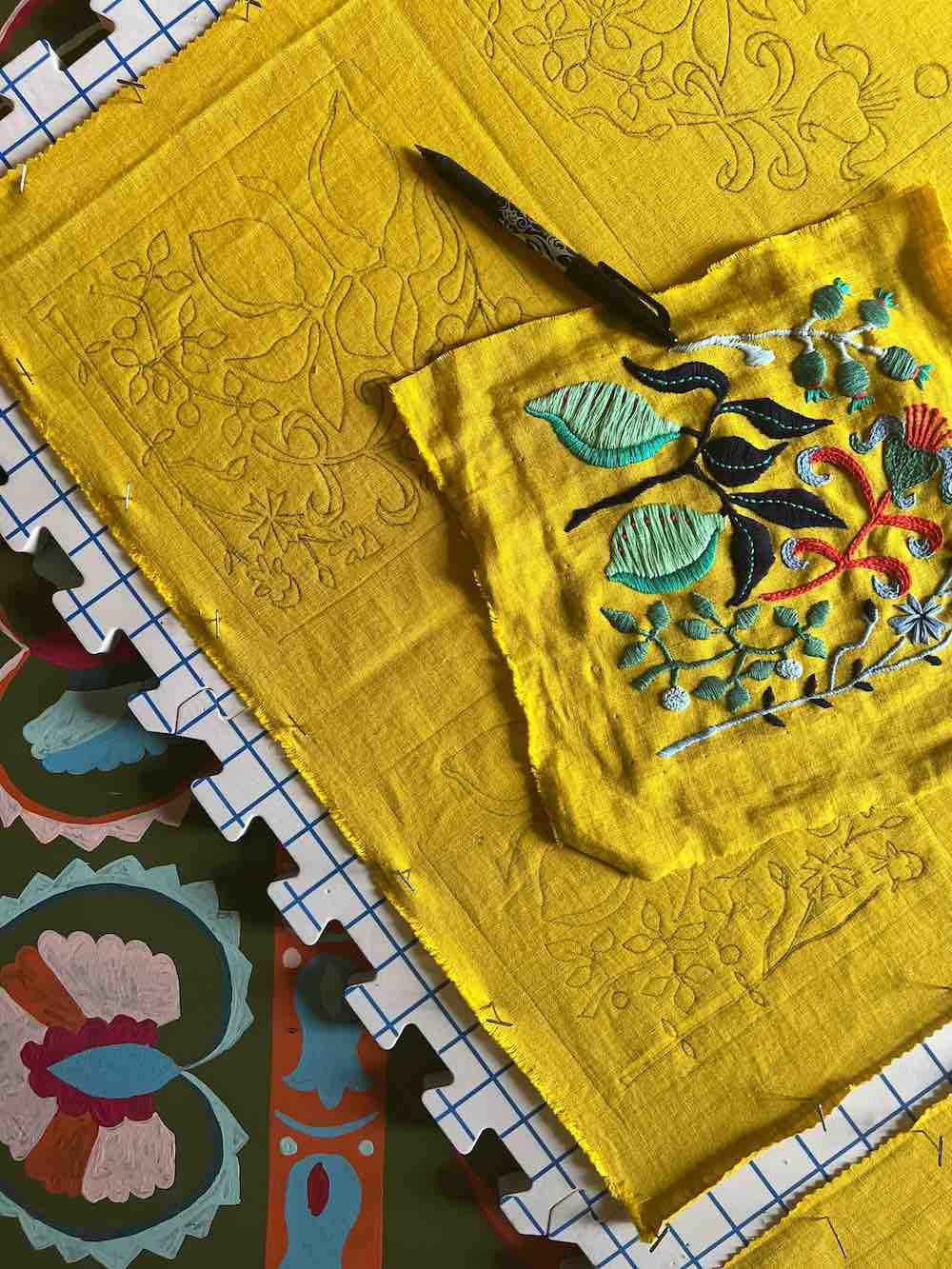

A couple of years back, I collaborated with this same talented group of women to create ten of our Fables designs, which we sold to raise funds for Oshana. So, this wasn’t my first experience working with these incredible artisans—and their craftsmanship truly amazes me every time.
Their skill goes beyond anything I could achieve myself; embroidery is deeply woven into Syrian heritage, and their dedication to the craft is second to none. Every stitch they create holds a level of precision, artistry, and cultural pride that’s genuinely humbling. It’s an honor to see my designs brought to life by hands so expert in the very art we’re celebrating. Read on below to hear the stories of the women who created these pieces.

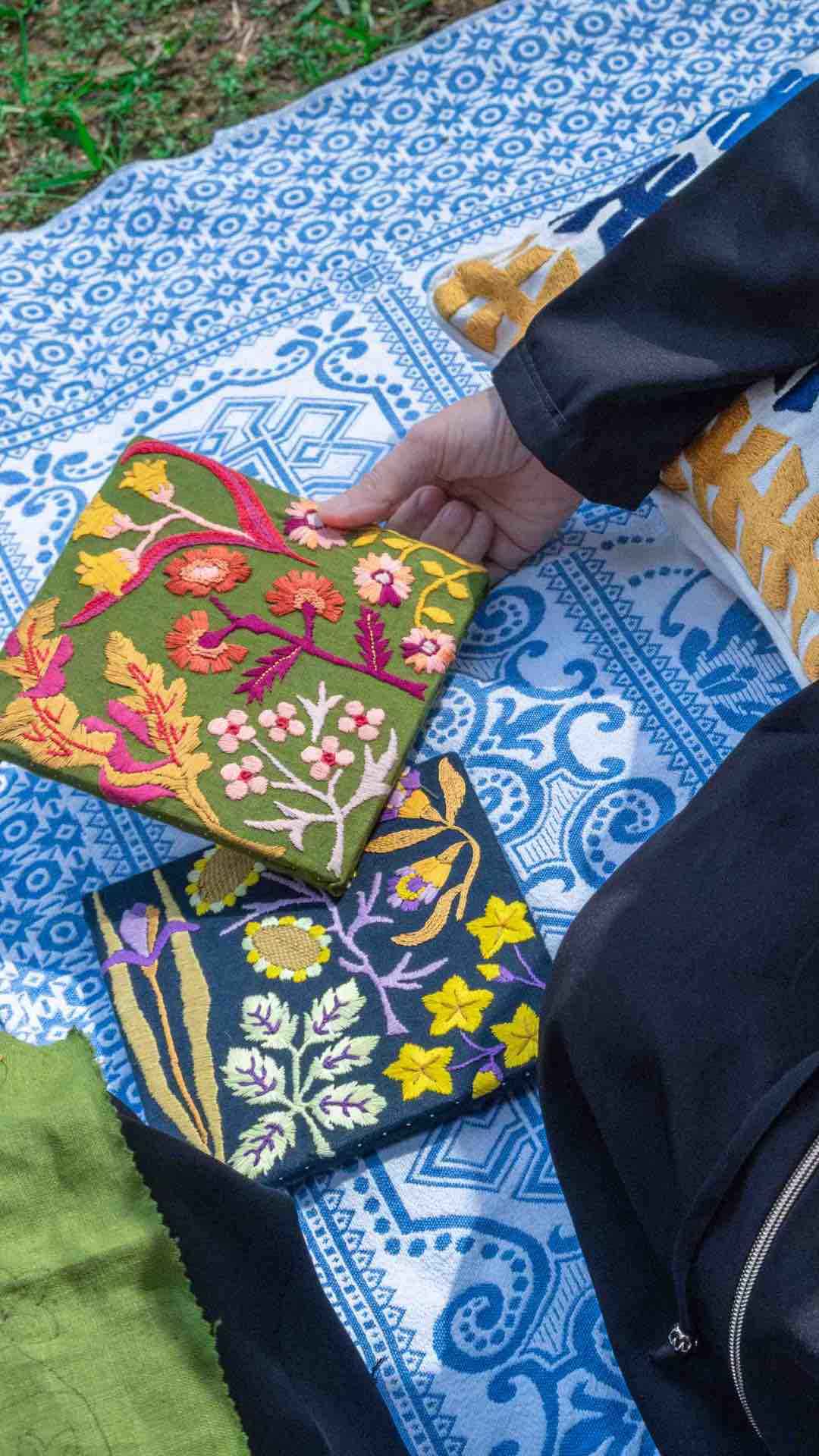
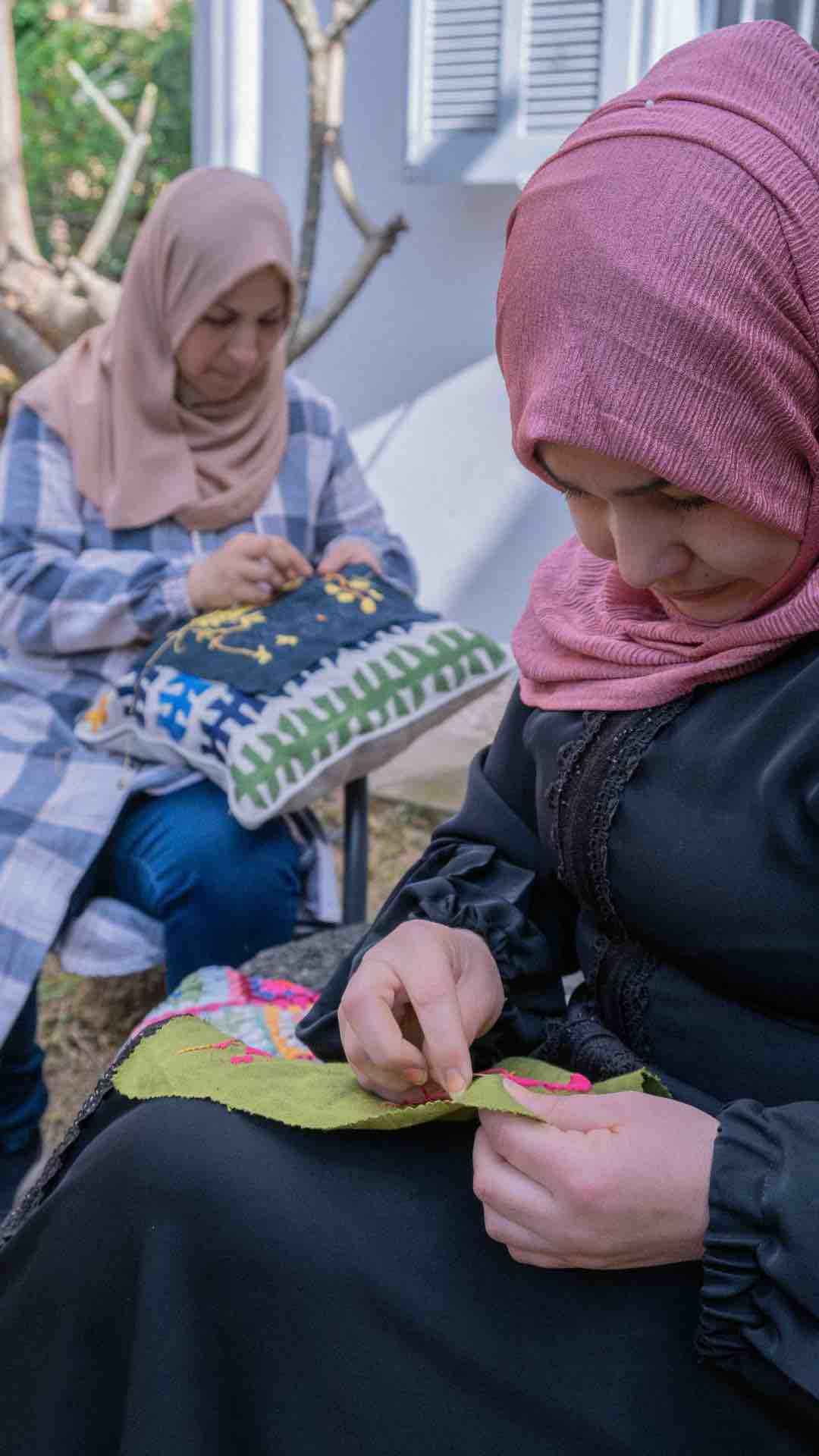
These pieces were all stitched by women whose lives have been entirely uprooted through conflict. Whilst living as refugees in Lebanon, their lives continue to be unsettled, and the work Oshana does to provide them with dignified income and community helps them sew their lives back together. Here are some of the stories of some of the women involved in this project, all the photography is by Adrienne Hurtut and the art direction is by Nour Daher:
Fayrouz Awad


“I am Fayrouz Awad, a Syrian resident in Lebanon. My home in the village was filled with the beauty of my handmade crafts that adorned the walls and furniture, and with plants and flowers that instilled joy and tranquillity, especially since I used to spend time at home with my young children, being both their mother and father due to their father's continuous
travel.
Then came the war that forced us to leave the house, which was shelled from all sides. I fled with my children to Beirut, where my elder son was working. The situation was very difficult, but I used to tell myself that my feeling of alienation was easier for me than losing one of my children.
...Nevertheless, I lost my son, a young man of twenty years, just one week
before his wedding in a car accident. I mourned and fell into depression, and the world became dark in my eyes. The hardest feeling is when you lose a piece of your heart.
I remained in this state for a year until I found an opportunity to return to my favourite work, embroidery, which used to make me forget my worries and sadness. I found my place in Oshana, where I formed friendships like no other and found mental comfort and released the buried negative energy within me. Thank God, I proved my competence and skill in embroidery and became the supervisor of embroidery, which provided me with a golden opportunity to enrol my daughters in a good school and help my family in difficult circumstances.
I have become much better psychologically, socially, and economically. I love this centre and everyone who works there, and when I meet with the workers, I feel like I'm among my family, from whom I have been separated. When I am among them, I feel like I am among my own people.”
Fatima Ali Omar


“I am Fatima Ali Amr, from Syria, from Idlib. The conditions of the war forced us to flee our country. Our house was destroyed, and my husband’s work too. There was nothing left for us; there was no income, no security, no life even.
We left our home, and moved around a lot staying here and there, but always the war would follow. In the end we came to Lebanon. But the conditions here in Lebanon are almost as bad as they were in Syria. We thought we might have to go back to Syria because we didn’t have any money, and life in Lebanon is so expensive. We were all living in one room, with four children. It was like a grave, it had no light. We were living in a nightmare.
Then I met the Oshana team and I started working with them, going out, and socialising. I made friends. I helped my husband with the rent so we got better accommodation where we can see the sun. I became healthier, thank God. I am more confident in myself. I have friends and people who love me and whom I love. I have indeed found my place. I really love doing embroidery, I work it from my heart. Embroidery reminds me of home.
There is a certain stitch that my mum taught me when I was young. Where I’m from in Syria the bride has to provide the linen for her new home, so everyone makes the sheets and pillows and tablecloths and everything by hand. You will be highly regarded if you know how to embroider and make these beautiful things.”
Nadia Al Sheikh


“My name is Nadia Al Sheikh, and I am originally from Idlib, Syria. In 2016, amidst growing turmoil, I fled to Beirut with my three children, seeking refuge and a new beginning. Life in Beirut was isolating at first; I knew no one and the loneliness was unbearable.
Everything changed when my neighbour introduced me to Oshana. Joining Oshana was a turning point—suddenly, I wasn't just surviving; I was thriving. The project not only brought friends into my life but also lifted my spirits. Our weekly meetings at the centre became the highlight of my week, a place that felt as welcoming and warm as home.
Oshana has truly become my family in Lebanon. It's through this work that I've managed to enrol my daughters in a good nursery, support my husband, and meet our family's needs. This job has given me a sense of accomplishment and added flavour to my life. Though my background is in music, embroidery has captured my heart. Each stitch I make is a testament to my resilience, a way to wield beauty against life's challenges.”
Bushra Al Alhmad


My name is Bushra Al Alahmad. I fled Syria in 2013 to escape the war, finding refuge in Lebanon. It was there, a few years later, that I met the Oshana team—an encounter that profoundly transformed my life. Working with them has not only bolstered my mental health but also granted me financial independence. Now, I can provide for my children's needs, which has been immensely empowering. More than just a means to an end, this job has reinstated my sense of worth in society, beyond the confines of household duties. It has rekindled my spirit, connecting me with friends and a community that values me. It made me feel alive again.”
Hiyam Safouk


“I left Syria in 2017 after my house was bombed and I lost my husband. In Lebanon I participated in a workshop where I learned embroidery. I started looking for places that offer work as the situation is very difficult.
Then I met Oshana through a girl who used to work with then, and I started working there. Thank God, the centre is amazing and the treatment is wonderful, they treat us like sisters. Through this work, I can buy my children clothes and good food. I really enjoy the meetings at the centre, they make me feel happy.”
Jamila Al Rashid


"I am Jamila Al Rashid. I left Syria in 2011 at the beginning of the revolution when the army entered and there were clashes and raids on houses. We fled to Lebanon and since then I haven't returned to Syria.
Our situation was very difficult and bad until my friends introduced me to Oshana. I have been working with them for three years now. I have made friends and found another family, and I'm very happy during gatherings with them. The most important thing is that now I have an income to help buy our children what they need. I am very happy with my work; it's what helps me forget my worries, and at the same time, I feel like I'm doing something important. Oshana is my place."
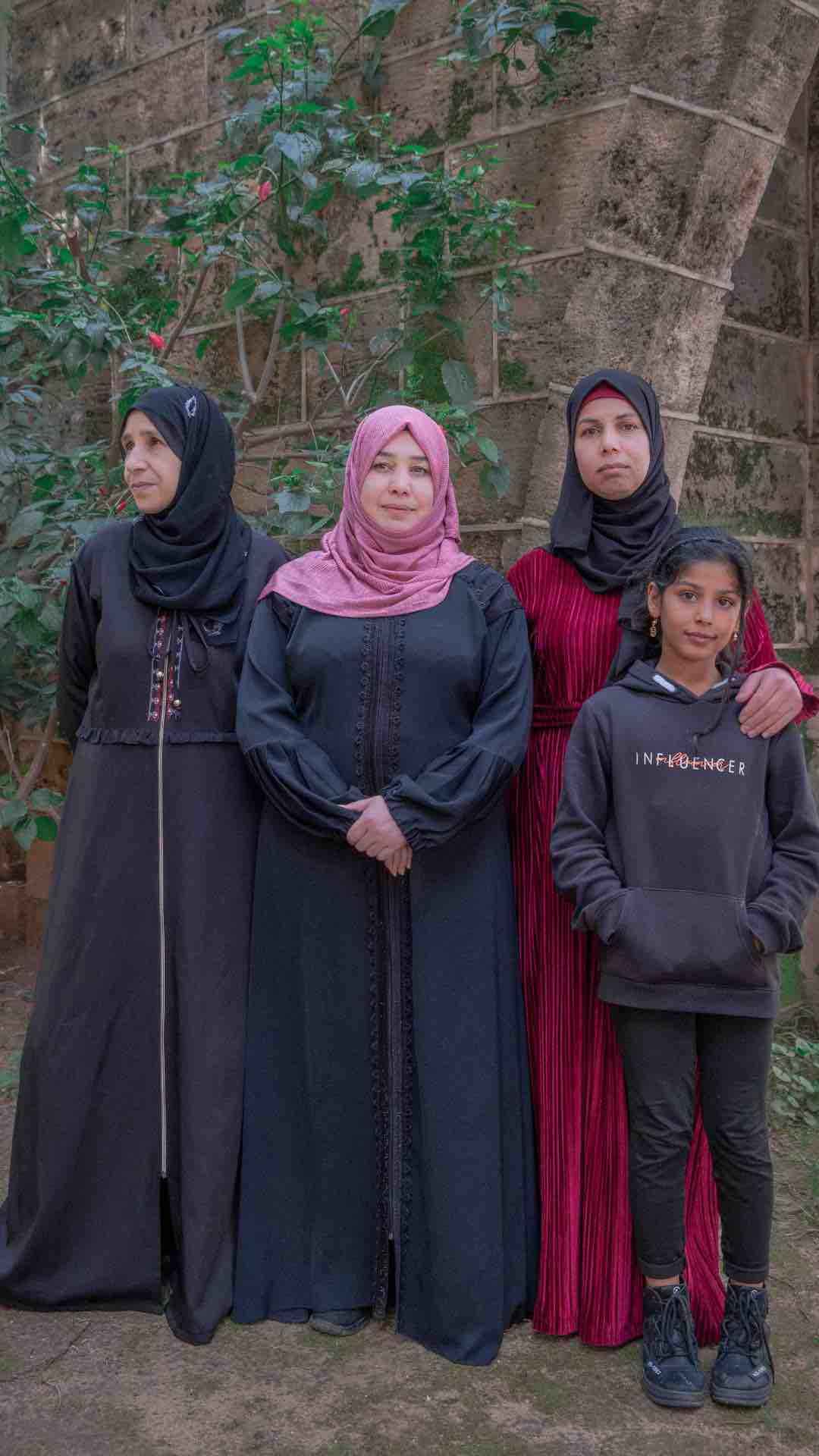
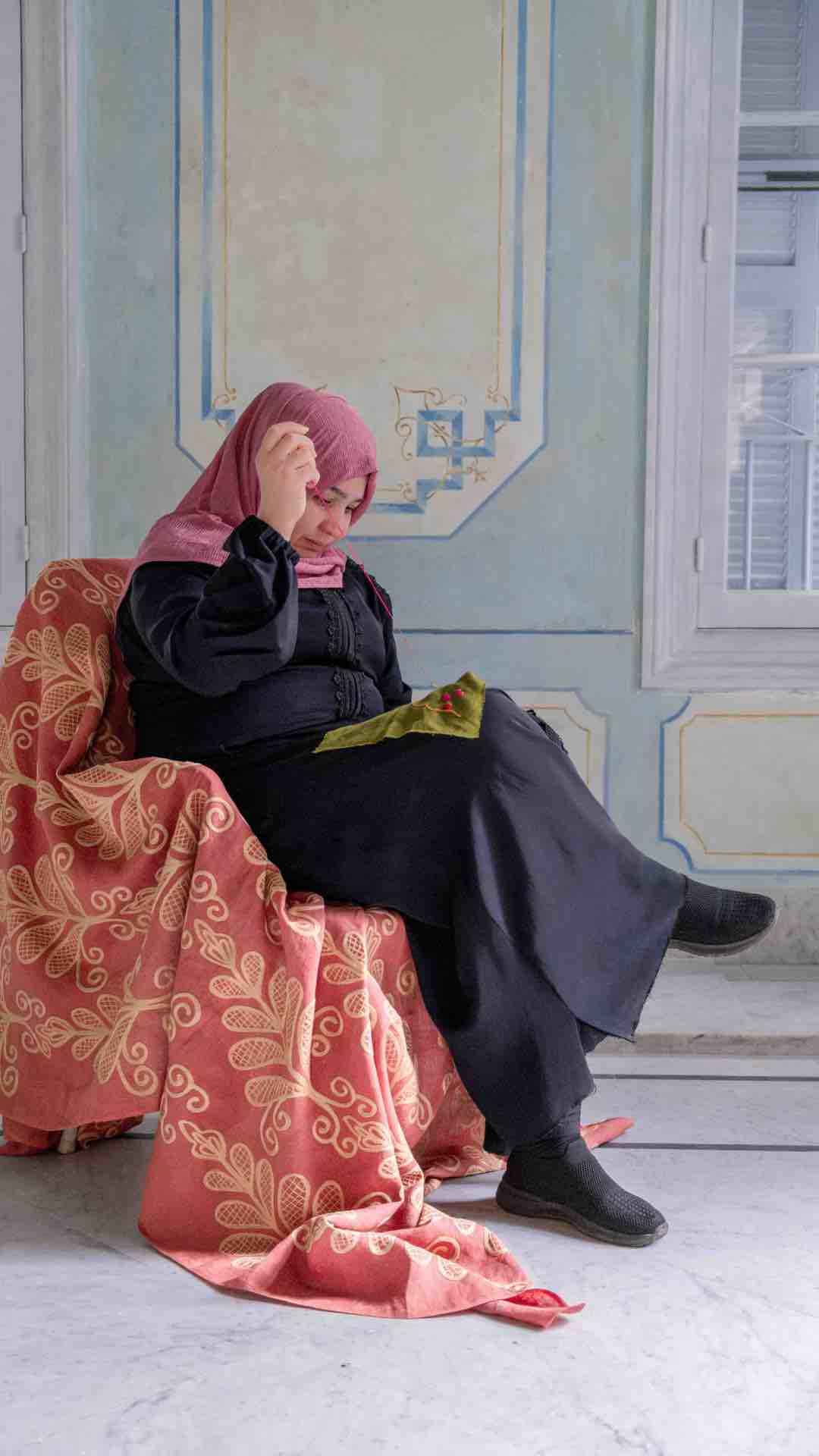

While these particular pieces aren’t for sale, there are wonderful ways to support Oshana and the talented women who bring these designs to life. By purchasing their work, you’re not only providing them with a dignified income but also showing them that their craft is valued. This support allows Oshana to keep their incredible work going—a labor of love run by a small, dedicated team: Itab, Tabitha, and Tashy, who work tirelessly to keep the charity thriving.
So, if you’re on the hunt for a unique gift for yourself or someone else—or perhaps you have a project in mind that could use their exquisite touch—you’ll find their details below. Shipping to and from Lebanon is straightforward, and commissioning these women’s work is more than just ordering a piece; it’s giving them the chance to continue their craft, which is truly life-changing. Below, you’ll see some images of pieces currently available for sale.






Back to the pieces... once we received the designs back from Lebanon, I set about mounting each one up individually, before painting dozens of frames to finish the pieces. Morris and Co opted for a beautiful, simple frame style using their wonderful paints - designs that meant the embroidery itself sung!
I also bought a set of 9 embroideries for myself from Oshana, so I would have pieces to proudly display too. For these ones, I went a little more OTT on the framing style (you know me, I can't resist!). These ones reflected the motif in the Yew and Aril. This is a project I am incredibly proud of - to work with a brand I hugely admire and in our own small way continue to support the work of a social enterprise I wholeheartedly believe in.

